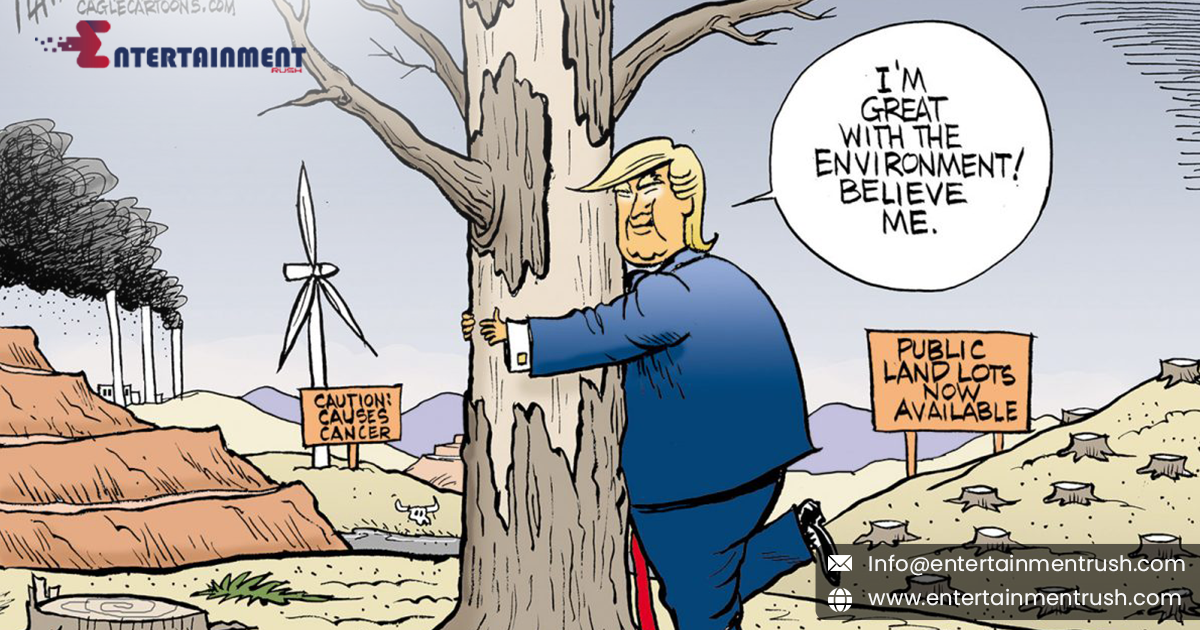Environmental policy is a complex and critical aspect of governance to address pressing environmental challenges such as climate change, pollution, biodiversity loss, and resource depletion. However, discussions surrounding environmental policy are often clouded by myths and misconceptions that can hinder progress toward meaningful and effective solutions. This blog will delve into common environmental policy myths, debunk them with evidence-based insights, and explore strategies for pursuing truly effective ecological solutions.
Myth #1: Environmental Protection Comes at the Expense of Economic Growth
One pervasive myth is that environmental protection is incompatible with economic growth. This notion pits environmental concerns against economic interests, framing them as opposing forces. In reality, sustainable development principles emphasize that environmental protection and economic prosperity can go hand in hand. Investments in renewable energy, energy efficiency, and sustainable infrastructure can stimulate economic growth, create jobs, and promote innovation while reducing environmental impact. Additionally, the cost of inaction on environmental issues, such as climate change-induced disasters and health impacts from pollution, far outweighs the investment needed for proactive environmental protection.
Myth #2: Environmental Regulations Stifle Innovation and Business Competitiveness
Another common misconception is that environmental regulations hamper innovation and hinder business competitiveness. However, history has shown that well-designed regulations can drive innovation by incentivizing companies to develop cleaner technologies and processes. For example, stricter emissions standards have spurred advancements in clean energy technologies like solar and wind power. Moreover, environmental regulations can level the playing field by ensuring that all businesses adhere to the same environmental standards, preventing unfair competition based on environmental shortcuts.
Myth #3: Individual Actions Have Little Impact on Environmental Issues
Some believe that individual actions, such as recycling or reducing personal energy consumption, have negligible effects on broader environmental issues. While systemic changes are indeed necessary to address large-scale environmental challenges, individual actions play a crucial role in driving collective change. When millions of individuals adopt sustainable behaviors, it creates a ripple effect that influences businesses, policymakers, and entire industries. Furthermore, individual actions contribute to building a culture of sustainability and environmental consciousness that is essential for systemic transformation.
Myth #4: Environmental Policy Is a Zero-Sum Game
A prevalent misconception is that environmental policy involves winners and losers, where environmental protection requires sacrifices from certain sectors or communities. In reality, effective environmental policy aims to promote equitable outcomes by considering social, economic, and environmental dimensions holistically. For instance, policies that support the transition to renewable energy can create new job opportunities in clean energy industries while mitigating climate impacts that disproportionately affect vulnerable communities. By prioritizing inclusivity and justice, environmental policies can foster positive outcomes for all stakeholders.
Myth #5: Technology Alone Can Solve Environmental Challenges
While technological innovations are indispensable in addressing environmental issues, relying solely on technology to solve complex challenges is a myth. Achieving environmental sustainability requires integrated approaches that combine technological advancements with changes in behavior, policies, and institutions. For example, deploying electric vehicles is essential for reducing emissions, but it must be complemented by investments in public transit, urban planning, and renewable energy to achieve meaningful impact. Embracing a systems-thinking approach is key to leveraging technology effectively within broader environmental policy frameworks.
Pursuing Effective Solutions
Dispelling these myths is essential for shaping effective environmental policies that deliver tangible results. To pursue effective solutions, policymakers, stakeholders, and citizens must prioritize evidence-based decision-making, collaboration, and innovation. Here are key strategies for advancing effective environmental policies:
Integrating Sustainability into Economic Planning:
Governments should embed sustainability principles into economic policies, budgeting, and investment decisions to ensure that environmental considerations are central to development strategies.
Promoting Circular Economy Practices:
Encouraging circular economy models that prioritize resource efficiency, waste reduction, and product lifecycle management can minimize environmental impact while fostering economic resilience.
Investing in Nature-Based Solutions:
Supporting nature-based solutions such as reforestation, wetland restoration, and sustainable agriculture can enhance biodiversity, sequester carbon, and strengthen ecosystem resilience.
Enhancing Environmental Education and Awareness:
Educating the public about environmental issues and empowering individuals to adopt sustainable lifestyles and advocating for policy change is critical for driving grassroots engagement.
Fostering International Cooperation:
Addressing global environmental challenges requires international collaboration and coordination. Governments should prioritize diplomacy and partnerships to achieve shared environmental goals. dispelling environmental policy myths is essential for advancing effective solutions that address pressing environmental challenges. By challenging misconceptions, embracing innovation, and prioritizing sustainability, we can foster a more resilient, equitable, and sustainable future for generations to come. Through collective action and informed decision-making, we can navigate towards a world where environmental protection is integrated into every facet of society, ensuring the well-being of both people and the planet.




Leave feedback about this